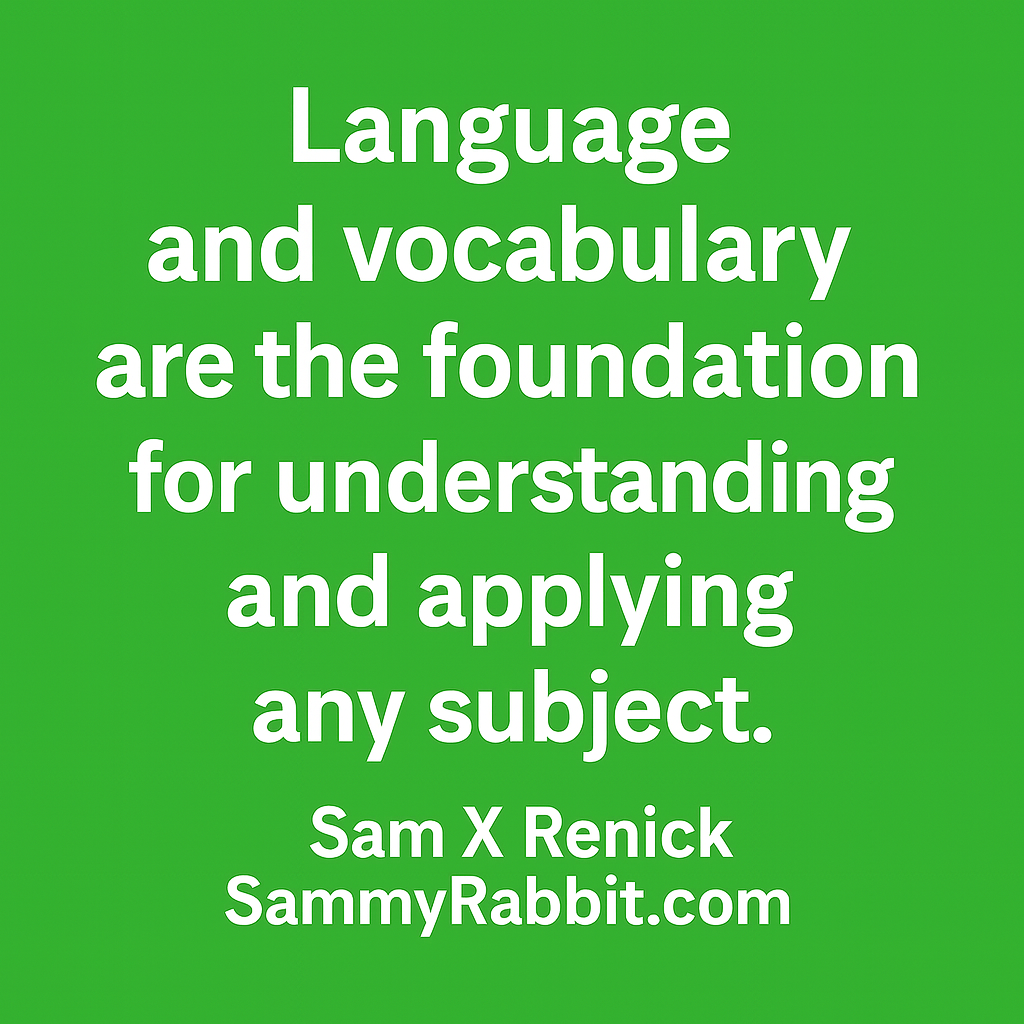 Why Language and Vocabulary Are the Keys to Understanding Personal Finance
Why Language and Vocabulary Are the Keys to Understanding Personal Finance
When it comes to learning any subject—whether it’s science, history, or personal finance—language and vocabulary play a powerful role. Words are more than just labels; they shape how we think, how confident we feel, and the decisions we make.
Here’s why building strong financial vocabulary is essential:
1. Vocabulary Shapes Understanding
Every field has its own set of terms. In personal finance, words like interest, compound, equity, liability, asset, inflation, or budget each carry specific meanings. If you don’t know or misunderstand these terms, your grasp of money management will be shaky. For example, confusing debt with deficit can lead to completely different financial choices.
2. Language Builds Confidence
When learners—kids or adults—become familiar with financial vocabulary, they feel more comfortable joining conversations about money. Without that knowledge, many shy away from financial discussions because they feel the topic is “too technical” or overwhelming. A strong vocabulary turns confusion into confidence.
3. Words Unlock Bigger Concepts
Vocabulary acts like stepping-stones. To understand compound interest, you first need to know interest. To understand financial independence, you need to grasp income, expenses, and assets. By mastering terms, you can stack concepts together and see the bigger financial picture.
4. Language Shapes Attitudes and Behaviors
The words we use also influence how we act. Consider the difference in mindset between these phrases:
“Pay yourself first” versus “save.”
“Invest in your future self” versus “cut back.”
“Set aside” versus “sacrifice.”
The right language makes financial habits feel empowering rather than restrictive.
5. Early Exposure Matters
Children who are introduced to money-related vocabulary early on develop familiarity and confidence that last a lifetime. Just like learning to read, repeated exposure to financial terms helps them build strong habits and healthy attitudes toward money.
The Bottom Line
Language and vocabulary are the foundation for understanding and applying any subject. In personal finance, they do more than clarify definitions—they build confidence, influence behaviors, and help learners connect small terms to big ideas. If we want future generations to be financially prepared, giving them the words to talk about money is the first step.
 Keep Kids Learning, Growing, and "Becoming"
Keep Kids Learning, Growing, and "Becoming"
Let’s get kids financially literate, dreaming big, and becoming everything they are capable of becoming. Here’s how you can help educate, empower, and elevate children:
Give Kids Access to Financial Education
Make financial learning fun, engaging, and effective! Enroll them in Sammy Rabbit's Money School today! Take advantage of our FREE or budget-friendly PREMIUM Memberships!
Collaborate on a Community Strategy
Partner with Team Sammy on 'one' impactful financial education strategy in your community. Explore our Menu of Project Ideas or suggest one of your own!
Be Featured on SammyRabbit.com
Get great exposure while growing good! Share your story, highlight your impact, and gain great exposure while helping kids and families grow good money habits. Click Here for details.
Contact Sammy Today
We welcome your questions, suggestions, and ideas. Let’s brainstorm, collaborate, and keep advancing Sammy Rabbit’s mission—helping kids, families, and communities consistently build financial literacy.
Related Reading and Resources
How to Define Money's Two Saves for Kids | Discover insights and tips on teaching kids to save
Get in the Habit | Song and activities teach kids to make a habit of saving money
Index of Money Lessons | Find tips and resources to teach kids about money